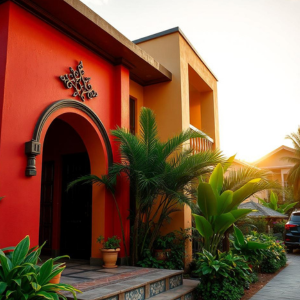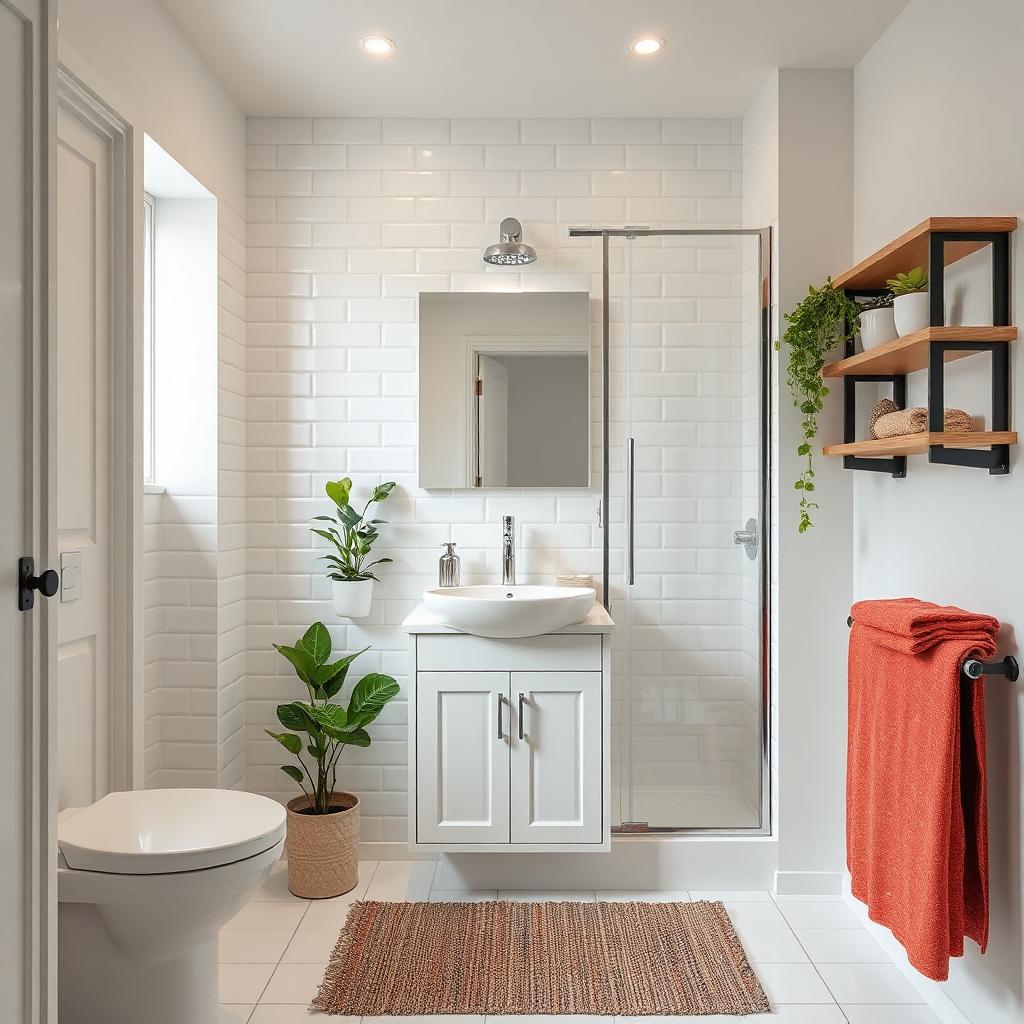Introduction
Renovating a home in Ghana can be stressful, especially when moving out is not possible. Renting another place in cities like Accra, Kumasi, or Takoradi is expensive, and family homes often hold sentimental value and responsibilities that make leaving difficult. The Mensah family in Kumasi, for example, had three generations living together and could not move out. They decided to stay and found creative ways to manage their space during the renovation, saving money and keeping family traditions alive.
The good news is that with the right planning, you can renovate your house without moving out. This guide shares practical tips to help you manage the process and keep your home improvement on track.
1. Decide If Staying Is Realistic
Not every renovation project can be managed while living inside the house. Ask yourself:
- How extensive is the renovation?
Painting and tiling are manageable, but tearing down walls or replacing a roof may require moving out for safety reasons. - Who is in the household?
If you have young children, elderly parents, or tenants, constant dust and noise could make life difficult. - What’s the timeline?
A quick 2-week kitchen upgrade is doable, but a 6-month major overhaul may not be worth the discomfort.
If the work involves major structural changes, water disconnection, or electrical rewiring, it may be safer to temporarily relocate. But for most cosmetic or phased renovations, staying put is possible.
2. Plan Renovations in Phases
One of the best ways to survive renovations is to break the project into stages. Instead of tearing the whole house apart at once, focus on one section at a time.
For example:
Phase 1: Bedrooms (to ensure a clean, restful space).
- Next actions:
- Clear out bedrooms and store items safely to avoid dust damage.
- Call a painter to schedule work.
- Ensure temporary sleeping arrangements if necessary.
Phase 2: Living Room and Dining Area.
- Next actions:
- Move fragile items to storage and cover furniture to safeguard.
- Arrange a meeting with a contractor to discuss layout changes.
- Order necessary supplies like flooring and wallpaper.
Phase 3: Kitchen and bathrooms.
- Next actions:
- Hire a plumber to review any new installations or repairs needed.
- Set up a temporary kitchen space elsewhere in the house.
- Purchase necessary fixtures and appliances in advance.
Phase 4: Outdoor and exterior works.
- Next actions:
- Confirm with landscapers and builders about the work schedule.
- Purchase materials for outdoor improvements like patio stones.
- Arrange any required permits or neighbourhood notices.
By working in phases, you can adjust your living space as the renovation moves along. Try to keep at least one bedroom, one bathroom, and a simple kitchen available at all times. It also helps to set aside a ‘sanctuary room’—a space free from construction where you can relax and take a break from the mess. This could be a veranda with comfortable chairs, a spare room with soft lighting and books, or even a cozy corner in the living room with plants and music. Having this retreat can make the renovation much less stressful.
3. Set Up Temporary Living Zones
Living in a house under renovation means adapting to temporary discomfort. Here are some survival tricks:
- Create a mini kitchen: Set up a gas burner, rice cooker, or hot plate in a safe corner or veranda. Use coolers and water dispensers to make life easier.
- Convert spaces: The hall can double as a bedroom for a few weeks if the main bedrooms are under construction.
- Store safely: Pack furniture and clothes in boxes, or consider renting a storage container to protect them from dust and other elements.
Remember: flexibility is key. The setup may not be glamorous, but it’s only temporary.
4. Manage Dust, Noise, and Safety
Dust and noise are the biggest enemies during renovations in Ghana. Cement mixing, sanding, and painting create a lot of discomfort.
- Dust control: Seal off construction areas with nylon sheets, old bedsheets, or plywood boards.
- Noise management: Ask contractors to schedule noisy work, such as drilling, during the day when the house is less occupied.
- Safety Precautions: Keep tools and leftover nails out of the reach of children. Never leave buckets containing cement or paint uncovered.
Ghana’s red soil and cement dust travel fast, so daily cleaning is essential.
If you are staying in the house during renovations, it is important to set clear rules with your contractors. Create a simple agreement that both the foreman and your family sign. This helps everyone understand what is expected and keeps things running smoothly. Be sure to include these ground rules in your agreement:
- Define working hours so you aren’t woken up at 6 a.m. by hammering. Suggested working hours could be from 8 a.m. to 5 p.m.
- Restrict movement with negotiated boundaries; workers don’t need to access every part of your home. Specify the rooms and areas contractors are allowed to enter.
- Insist on daily clean-up so the house remains livable. Contractors should ensure all debris is cleared and tools are stored away at the end of each workday.
- Consider adding clauses such as penalties for delays without valid reasons, prohibitions on smoking or playing loud music on site, and requirements for contractors to use protective coverings on floors to minimise damage.
Hire reliable artisans who respect these boundaries. A good foreman or project manager can make all the difference.
6. Budget for Extra Inconvenience
Living in a renovation site comes with hidden costs. Expect to spend more on:
- Eating out when the kitchen is unavailable.
- Buy water tanks or buckets if plumbing is disconnected.
- Renting storage for furniture and appliances.
It’s wise to add 10–15% extra to your budget to cover unexpected costs. This additional money can also help alleviate the stress of renovations—consider using some for a family outing or a small treat. Planning for both financial and emotional needs makes the process easier. To save more, try buying materials like cement, paint, and tiles in bulk from local markets, where prices are often better. You can also ask artisans and workers for discounts or payment plans. These tips can help you manage your budget without sacrificing quality.
7. Protect Health and Well-Being
Renovations are physically and mentally exhausting. Protect your household by:
- Ventilating rooms when painting or tiling to reduce exposure to fumes.
- Wearing masks when dust levels are high.
- Creating a “quiet corner” for rest and study, especially for children.
- Giving the elderly and toddlers extra protection from construction hazards.
Sometimes, even a short weekend getaway can provide much-needed relief from the chaos.
Cultural & Family Considerations
In Ghana, many homes are shared by several family members. Renovating while everyone is still living together can lead to disagreements over shared spaces like the kitchen or bathroom. To keep things peaceful, try rotating chores so everyone shares the work. Use a family WhatsApp group to update each other about the renovation schedule. Holding regular family meetings before and during the project can help set clear expectations and solve problems early. Also, agree on when each person can use shared spaces to avoid arguments. And remember, neighbours and relatives may stop by with lots of advice—take what helps and let the rest go.
Conclusion
Renovating a house in Ghana without moving out is not easy, but it is possible. With proper planning, phased construction, safety measures, and clear communication with contractors, you can survive the dust and noise and still enjoy your home’s transformation. It does take patience, flexibility, and even a sense of humour, but in the end, you get a beautiful, improved home without the extra cost of moving.
Have you ever lived in your house while it was under renovation? Share your survival tips in the comments below!


